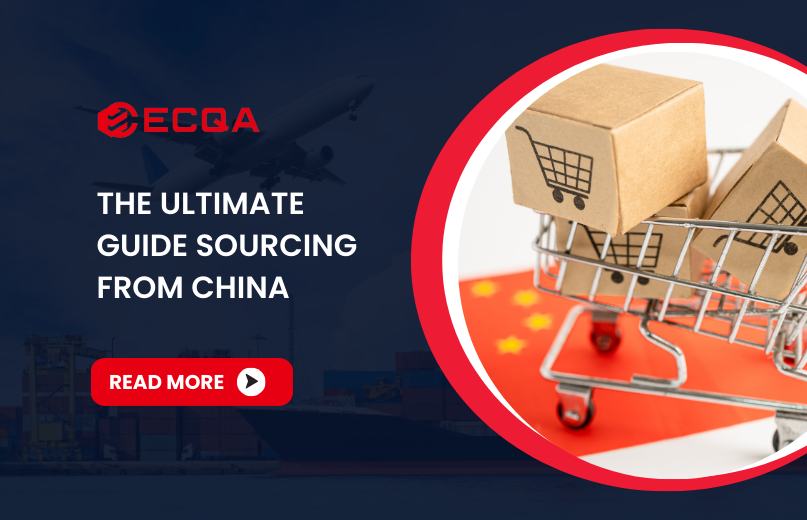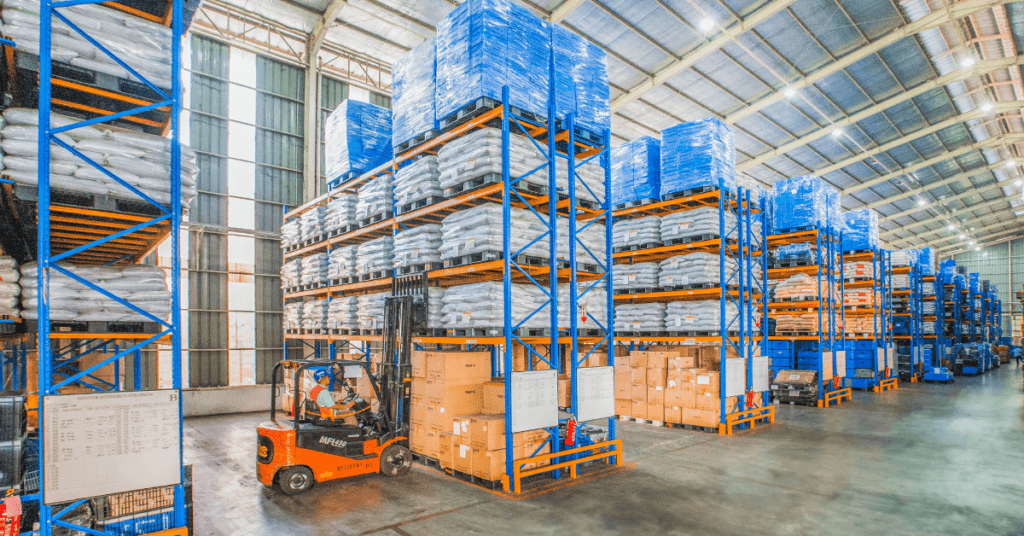
The Ultimate Guide Sourcing from China
China has established itself as the world’s manufacturing hub, offering a vast array of products at competitive prices. Sourcing products from China can help businesses save money, increase profit margins, and offer a greater variety of products. However, navigating the complexities of Chinese sourcing requires careful planning, knowledge, and strategic execution. This guide will help you source products from China successfully by avoiding mistakes and maximising your business’s potential through effective China sourcing strategies.
Product Sourcing from China
Sourcing from China has become a popular choice for businesses looking to diversify their supply chain and access a wide range of products. China has emerged as a global manufacturing hub, boasting a vast production capacity and a diverse range of raw materials. But what exactly is sourcing, and why should you consider China as a sourcing destination for your product sourcing needs?
What is sourcing?
Sourcing refers to the process of finding, evaluating, and engaging suppliers to obtain goods or services for a business. It involves everything from identifying potential suppliers to negotiating contracts and managing relationships to ensure a smooth supply chain.
Why source from China?
China has established itself as a global manufacturing powerhouse, offering a vast array of products across various industries. From electronics and textiles to machinery and consumer goods, China’s manufacturing capabilities are unparalleled. Additionally, China’s competitive pricing and low minimum order quantities make it an attractive option for businesses of all sizes seeking efficient and cost-effective China product sourcing.
5 Challenges of Sourcing from China

While sourcing from China offers numerous advantages, businesses also face several challenges that require careful consideration and proactive management in overcoming China sourcing challenges.
Quality control & Product Compliance
When sourcing products from China, prioritizing quality and compliance with international standards is crucial. Substandard products can lead to customer dissatisfaction, damage to brand reputation, and costly returns or recalls. Many buyers often wonder, “Is Made in China Product Good?”—the answer largely depends on the supplier’s quality control measures and adherence to industry standards.
Investing in quality control inspections throughout the entire production process, from raw material sourcing to final product assembly, is essential to maintain product integrity and minimize the risk of costly returns or recalls. Partnering with suppliers who adhere to industry regulations and have a proven track record of delivering high quality products is equally important for successful product compliance sourcing.
Communication and Cultural Barriers
Language barriers can pose significant challenges when sourcing from China. Effective communication is crucial for ensuring that your suppliers clearly understand your product specifications, quality requirements, and delivery schedules. Misunderstandings due to language differences can lead to costly mistakes, delays, and even disputes.
Collaborating with reputable China sourcing agents can be a valuable solution to overcome this challenge. These agents are fluent in both Chinese and English , possess in-depth knowledge of Chinese business practices, and have established relationships with reliable suppliers.
Intellectual Property Risks
Protecting intellectual property rights is a significant concern when sourcing your products from China. Business owners must prioritise the protection of their designs, patents, and trademarks to prevent unauthorised replication or misuse. This involves implementing proactive measures such as establishing comprehensive legal agreements with suppliers that clearly outline IP ownership and usage rights.
Partnering with reputable suppliers who demonstrate a commitment to respecting IP rights is also essential for secure product sourcing. By taking these precautions, businesses can reduce the risks associated with IP infringement and ensure the integrity of their product sourcing from China.
Logistics and Shipping
The logistics and shipping process involved in importing from China can be complex. It involves coordinating multiple aspects, including international shipping arrangements, customs clearance procedures, and transportation logistics. These processes can be time-consuming, costly, and prone to delays if not managed effectively.
Navigating the complicated international trade regulations, tariffs, and documentation can also be overwhelming for businesses without prior experience. Any errors or oversights in this regard can lead to shipment delays, additional fees, or even legal complications. Therefore, partnering with experienced logistics providers who specialise in China imports can be invaluable.
Additionally, to reduce potential risks and ensure product quality, businesses can opt for container loading supervision or pre-shipment inspection services. These services verify that the goods are loaded correctly and meet the agreed-upon specifications before they are shipped, assuring quality control before shipping from China.
Lead Times
While China’s manufacturing capacity is vast, production lead times can vary depending on the product’s complexity and the supplier’s workload. Unexpected delays due to unforeseen circumstances, such as machinery malfunctions, power outages, or logistical bottlenecks, can further worsen the issue. These delays can disrupt your supply chain, leading to inventory shortages, missed deadlines, and dissatisfied customers.
To overcome this challenge, it’s crucial to establish clear timelines and expectations with your suppliers from the outset, planning for production lead times in China. This includes setting realistic deadlines for each production stage, from sourcing raw materials to final assembly and packaging, using detailed China production planning techniques.
5 Tips for Sourcing from China
Sourcing from China presents unique challenges, but by implementing effective strategies, businesses can successfully navigate the complexities of the Chinese market and establish strong partnerships with suppliers, ensuring successful sourcing from Chinese suppliers. Below are five tips for sourcing from China and building long-term supplier relationships in China.
Identifying the right suppliers
When sourcing products from China, the first step is finding reliable suppliers capable of manufacturing your desired product. Platforms like Alibaba and Global Sources can be valuable resources for connecting with potential suppliers, but it’s crucial to authenticate and verify suppliers legitimacy.
A key tip for verifying suppliers on Alibaba is to prioritise those with “Verified Supplier” or “Verified Pro Supplier” status. These statuses indicate that the supplier has undergone a third-party verification process, confirming their legal status and production capabilities. Additionally, look for suppliers with trade assurance, which offers payment protection and quality guarantees. Read here for more tips on finding the right suppliers in China.
However, it’s important to go beyond these surface-level indicators. Request detailed company information, including business licences, certifications, and factory audits. Conduct thorough background checks and consider communicating directly with previous clients for references. If possible, conduct a factory audit to assess their production capabilities and quality control processes firsthand, doing crucial factory audits for China suppliers.
Navigating cultural differences
Navigating cultural differences is crucial for successful sourcing from China. Understanding Chinese business culture, etiquette, and communication styles can help you build strong relationships and avoid misunderstandings. Before engaging with suppliers, research their cultural norms and values. Learn about business etiquette, communication preferences, and negotiation tactics.
Effective communication is key to overcoming cultural barriers. While indirect communication is common in Chinese culture, strive for clarity in your business dealings. Clearly articulate your expectations, requirements, and concerns. If language barriers pose a challenge, consider hiring a local intermediary or translator to facilitate communication and ensure mutual understanding.
Negotiating terms and pricing
Successful negotiation plays a crucial role in obtaining favorable terms and pricing from Chinese suppliers, achieving the best prices from China suppliers. Before engaging in any negotiations, it is crucial to extensively research market prices, competitor offerings, and production costs for smart negotiation strategies in China. This is essential to ensure that any deal secured is fair and beneficial for your business and to understand Chinese supplier pricing models.
If you have a large order or anticipate repeat business, leverage this volume to negotiate better pricing and terms, taking advantage of bulk order discounts in China. Chinese suppliers are often open to discounts for bulk orders, using effective negotiation techniques for China sourcing.
Product Quality
Ensuring product quality is critical when sourcing from China. To ensure clear communication, it is essential to provide suppliers with detailed and precise specifications. This will help avoid misunderstandings and ensure everyone is on the same page. This includes materials, dimensions, colours, finishes, and performance requirements. Before mass production begins, request and thoroughly evaluate samples to confirm the supplier’s ability to meet your quality standards.
Implement a comprehensive quality control process to protect your products. Appoint a third-party inspection service to conduct regular inspections throughout production. Clearly define what you consider acceptable quality, including how many defects you’ll allow, and make sure your supplier understands and follows these guidelines. For complex products, consider independent testing to ensure they meet industry standards.
Build Strong Relationships
Building lasting partnerships with Chinese suppliers is a strategic investment. Regular communication serves as the foundation for these relationships, ensuring that both parties are aligned on expectations, timelines, and quality standards.
Fair business practices are essential for building trust and maintaining positive supplier relationships. This includes timely payments, reasonable demands, and transparent negotiations. By consistently demonstrating ethical behaviour, you establish yourself as a reliable and desirable business partner.
Over time, the trust and rapport built through these practices can yield substantial benefits. Valued long-term clients may receive discounted pricing or priority access to new products from suppliers, potentially leading to significant cost savings and a competitive edge in the market.
Sourcing process from China offers unparalleled opportunities for businesses to access a wide range of products and scale their operations. By understanding the strategies, challenges, and best practices associated with sourcing from China, businesses can navigate the complexities of the Chinese market and build successful, sustainable supply chains.
Achieve sourcing success with confidence. ECQA, as third-party inspection services provide the data and insights you need to make informed decisions and build a sustainable supply chain. Reach out to discover how we can help you achieve your sourcing goals.

 Request Free Sample Report
Request Free Sample Report